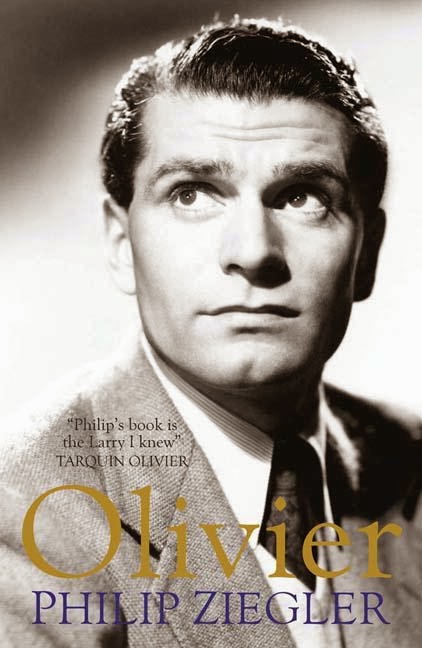.jpg) Lack of clear identity is a theme in Olivier by Philip Ziegler, a biography published in Great Britain in 2013 which comes to American bookstores and libraries this June. The author quotes Laurence Olivier saying late in his life that he did not really know who he was. The actor had spent his whole life being other people, an almost denial of self. Perhaps his lack of self was an asset which allowed him to portray Henry V, Richard III, Othello, Uncle Vanya, and King Lear so convincingly.
Lack of clear identity is a theme in Olivier by Philip Ziegler, a biography published in Great Britain in 2013 which comes to American bookstores and libraries this June. The author quotes Laurence Olivier saying late in his life that he did not really know who he was. The actor had spent his whole life being other people, an almost denial of self. Perhaps his lack of self was an asset which allowed him to portray Henry V, Richard III, Othello, Uncle Vanya, and King Lear so convincingly.If Ziegler is to be believed, and he presents plenty of evidence, Laurence Olivier did not, however, lack ambition. He wanted to be known as the world's greatest actor. To achieve this honor, he wanted to be the lead character in every play and film in which he appeared. To be second to Ralph Richardson or John Gielgud was sheer agony. When he was not cast as a lead, he did everything he could to make his character the one most remembered by audiences, and the author says that by grabbing attention Olivier often succeeded in changing the focus of a play. As you can imagine, he made enemies of directors and other actors. How he actually remained fairly good friends with Richardson and Gielgud, his most serious rivals, is one of the interesting aspects of Ziegler's story.
Theater was Olivier's focus most of his life, working as an actor, director, producer, and founder of the National Theatre in London. He was very suspicious of film and television, and in his early movie appearances, he was criticized for gross overacting, applying skills for theater to the more intimate screen. Ironically, for most Americans outside New York and anyone born after the 1970s, Olivier will be thought of as a movie star. Henry V, Sleuth, and Marathon Man will keep his image living as long as people are still watching classic films. (While shooting Marathon Man, Olivier always called Dustin Hoffman "Justin," which may have been a ploy to unsettle the young actor with whom he was competing for dominance of the movie.)
At over 400 pages of actual text in the British edition, Olivier looks like an appropriately big book for a major figure in 20th century entertainment. There was much for me to learn on every page, but it read fairly quickly, and I was left wanting to learn more. I now want to see some old movies.
Ziegler, Philip. Olivier. MacLehose Press, June 2014. 352p. ISBN 9781623650421.



No comments:
Post a Comment